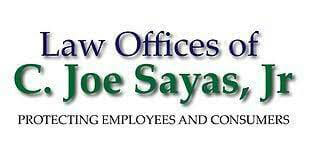Rights of employees paid by commission in California
Michelle McGrath and Veronica O’Boy worked for Wyndham Resort Development Corporation and its affiliates as salespersons in California. Wyndham employed them to sell its goods and services such as interests in timeshare properties.
After a two-month training period, salespersons are compensated only by commission and advances on commissions based on sales of Wyndham’s products and services. The advances are “recoverable” by the employer if the sale is not completed. The employees are not paid for time spent in non-sales activities, such as waiting at work to make sales presentations to clients, and time spent on rest periods. The employer did not monitor and record the time and tasks showing when the salespersons engaged in non-sales activities. The employees also claimed that the employer did not reimburse them for all necessary and reasonable business expenses that the employees incurred.
The employees sued Wyndham for failure to pay for all hours worked. They also sought reimbursement for business expenses.
Employees may be paid on various compensation plans, such as hourly, by piece-rate, by commission, etc. However, such plans must ensure that employees are paid no less than the minimum wage for all hours worked. If an employee spends time doing other work-related activities not covered by the plan (such as pick-up or clean-up activities, or attending compulsory work meetings), the time spent doing this are considered hours worked, and must be paid at least the minimum wage (or an agreed hourly rate, if any).
Under California law, employees who are paid by commissions are entitled to at least minimum wages for each hour worked, and overtime pay when necessary. Basing the employee’s pay merely on an employee’s job description or an employer’s estimateregarding the number of hours an employee should be working in sales-related activities (without regard to the employee’s actual hours worked) is not acceptable.
A commission plan may provide payment of a fixed “advance,” or “draw” on a periodic basis. Commission advances typically will require certain conditions that must be satisfied before commissions are earned. Thus, even though a commission advance may have already been paid, an employee will not have yet earned the commission if certain conditions are not yet satisfied. The employee’s sale must be commissionable for the employee to earn the commission. If advances are paid for anticipated sales that do not materialize, the commission may be “recovered” or “clawed back” as a deduction from future pay. However, if the system of payment results in employees not being paid for non-productive (or non-selling) time, that pay practice may be illegal.
Are employees paid on commission entitled to separate pay for rest breaks if the commission plan has a “claw back” provision? Courts said yes, particularly where the plan does not address how employees are to be paid for rest breaks (which is time spent not earning commissions). Where the commission computation did not account for rest breaks, the employee should be separately paid for rest breaks.
Lastly, commissioned employees are still employees, and under California law, an employer must reimburse an employee for all necessary expenditures incurred in direct consequence of the discharge of the employee’s duties. These include costs spent complying with the employer’s instructions. Examples of reimbursable expenses include travel expenses; costs of uniforms or special clothing required by the employer; and costs of supplies, tools, materials, or equipment.
In the case against Wyndham, the parties agreed to settlement and not to proceed trial. The employees will recover $7.3 million in damages from the employer.
The Law Offices of C. Joe Sayas, Jr. welcomes inquiries about this topic. All inquiries are confidential and at no-cost. You can contact the office at (818) 291-0088 or visit www.joesayaslaw.comor our Facebook page Joe Sayas Law. [C. Joe Sayas, Jr., Esq. is an experienced trial attorney who has successfully recovered wages and other monetary damages for thousands of employees and consumers. He was named Top Labor & Employment Attorney in California by the Daily Journal, consistently selected as Super Lawyer by the Los Angeles Magazine, and is the recipient of PABA’s Community Champion Award for 2016.]


